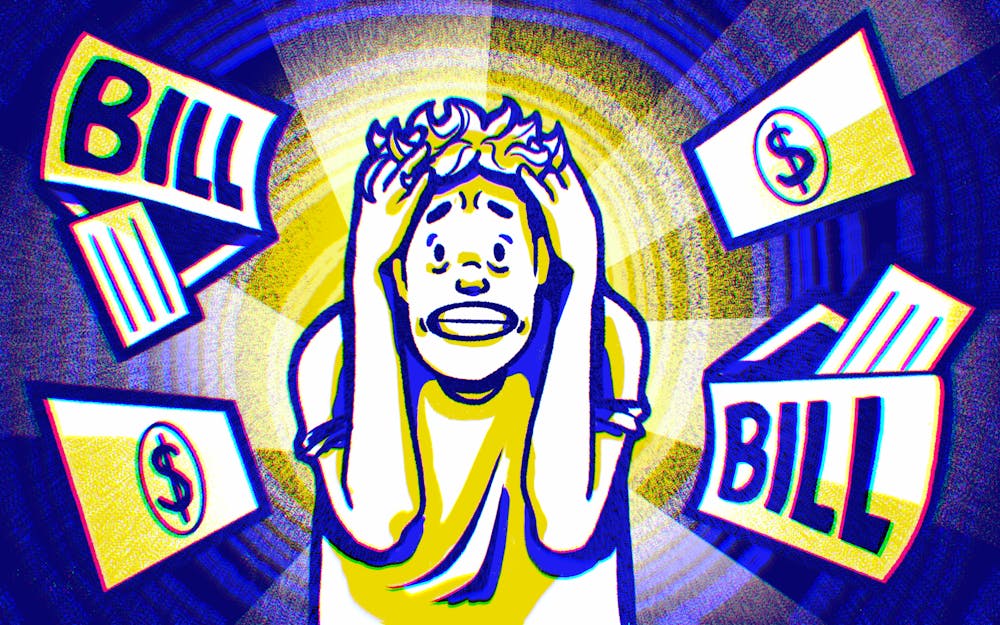After receiving endless offers in the mail, I recently applied for my first credit card. But upon receiving it, I realized I had questions about how everything worked. We’re told that it’s important to begin building a credit history, but the details about credit scores, how interest is calculated, and the impact of debt on the rest of our lives aren’t always conveyed clearly. I would guess that credit card companies like it this way. If we’re confused, it’s easier to fall into the pitfall of constant credit card debt.
According to CNBC, “About 4 in 10 Americans ‘have no idea’ how their credit score is determined.” Why aren’t high schools mandated to teach us about credit and how it works? We need clearer information about how credit works before the card is in our wallet.
Credit is a relatively simple idea. There’s the person who gives out the loans and the person who receives the loan, the agreement is that the borrower will pay back the lender in a certain amount of time. Credit card companies have historically tried to make the process confusing with all the small print. Like, what is a credit score? Your credit score predicts your ability to repay the loan to the lender. The higher the credit score, the more the lender believes you are a worthy bet. How it is determined is much less clear, but it shouldn’t be.
It’s essential to understand how your credit score, commonly called a FICO score, is calculated to build good credit. According to Investopedia, “A FICO credit score is calculated based on five factors: your payment history, the amount owed, new credit, length of credit history, and credit mix.” The two factors most important to your score are making timely payments and how much credit you’ve used up.
This score will matter a lot in our generation’s future. It will impact our ability to secure home or car loans. The scale is 300-850, anything above 800 considered excellent, 740-799 is very good, 677-739 is good, 580-669 is fair and anything below is bad. when you’re applying for a housing loan from the bank, and they see higher credit scores mean banks are more willing to provide loans. If you have a lower credit score, you might still get the loan, but they could charge you a higher interest rate to take on the risk, causing you to pay more money in the long run. The bank wins either way.
Another way the bank wins is through the confusing calculations of monthly interest, which is the price you pay for taking out a loan or the amount you charge when lending money. You must remember that every time you use your card, you are taking out a loan and eventually must pay it back. The longer it takes to pay it off, the more interest you will pay the bank. And the interest rates on credit cards are high, averaging around 24% per month. If you cannot pay your balance, the amount you owe can quickly grow. This can hurt your credit score and cause massive financial headaches for years.
A negative credit report can make life a whole lot harder. There are fewer loan options, higher interest rates, and it is harder to rent properties. Improving your credit is possible, but it is tough and time-consuming. Unfortunately, many people find themselves stuck in a cycle of debt, and not always because of unwise spending.
According to a 2023 U.S. News & World Report survey, over 42% of college students surveyed carried credit card debt. Of these students, nearly half said the reasons for the debts include paying for college essentials like books, fees and living expenses. This could impact students' financial situation for years to come, and not because they purchased too many fancy coffees.
It is tricky to understand all of the ins and outs of credit, credit scores and interest rate calculations. It’s important that we learn how to navigate credit card use to avoid being trapped in credit card debt. Given its long impact on our lives, more resources should be available to help us learn about managing credit cards that do not involve confusing fine print.
Jack Davis (he/him) is a freshman studying journalism.






